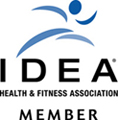 Dear Eating Disorder,
Dear Eating Disorder,I need you to release me from your death grip, but you never seem to let me alone. You are with me 24/7. Is my only way out to take my life? But, then you are already taking my life. It seems there is no win but only lose-lose. But yet, I take hope. Hope that someone will help. Or that I will begin to help myself. ~from an eating disorder hospital patient~
While it's sobering to read these penetrating letters from eating disorder survivors and or victims, we still take hope that there is a way out for them. We take hope that the communities they live in as well as their families will step up and discover ways to support prevention as well as recovery before it's too late.
Remember, up to 221,000 lose their lives fighting these disorders, which is clearly epidemic, especially among young people. (Elise Project)
Ways to Prevent Eating Disorders and To Help in Recovery
- Teaching with a multidisciplinary approach beginning in those early years of pre-school.
- Teaching methods for wellness on their level.
- Guiding and helping them make better choices. Choices in the foods they eat, the exercises they get, as well as the relationships they are in.
- Providing a qualified nutrition program, being a key focus.
Nutrition and Eating Disorders?
One of the reasons nutrition is a focus is because it's not. Meaning, nutrition is the last thing on the mind of those with an eating disorder. This "disease" all but destroys the nutrition in the lives of those suffering. Why? Think about it, they are either not eating, or they are eating in large amounts, only to purge what they just consumed. Either way, their bodies are being depleted of the nutrients needed to stay healthy.
Often people with eating disorders refuse certain food groups. Why? For fear that it will cause them to gain weight. Unfortunately, their goal is not to be "healthy" but thin, so their reasoning begins to diminish.
It would only make sense that we need to accelerate wellness education to elementary age children because research shows 1st-3rd grade, girls desire to be thinner and 81 percent of 10 year olds are fearful of being fat. (NEDA)
Multidisciplinary Program Helps
Part of the multifaceted recovery program in centers for pediatric eating disorders is hooking the patient up with a dietitian. The dietitian provides nutrition education such as:
- Targeting an individual healthy weight range.
- Planning meals.
- Dispelling age old myths about food.
- Working with parents in learning how to help reintroduce "fear" foods.
- Normalizing food choices.
- Learning proper portion sizes.
- All of these help prevent relapse, which is critical to the plan.
Kathryn Johnson, registered and licensed dietitian, says, "Giving them knowledge of nutrition, watching them incorporate a once-scary food back into their meal plan, and seeing them return to normalized eating outside of the hospital is among the best rewards of my job." (DMN, 2/22/09)
Let's step up, ladies and gents, and find ways we can personally affect the lives of our young. Consider how you may make a difference.
NEXT: Warning signs of anorexia and bulimia.
Last But Not Least: Thoughts from personal interviews with people who are survivors of an eating disorder.
Copyright © 2008 by Pilates Worx 4 Life. All rights reserved. Check out website: www.pilatesworx4life.com






 Enjoy
Enjoy











